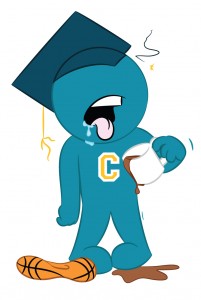 Avoiding Burnout
Avoiding Burnout
One of the recurring debates in high school recruiting circles is whether it’s better to specialize in one sport or play multiple sports. Our focus for this piece is athletes who burn out and, from that perspective, the evidence shows it is better to play multiple sports.
But why? First and foremost is injuries. Overuse and constant training can lead to muscle strains and then injury and ultimately there is an element of mental fatigue as well. Young pitchers, for example, often throw way too much playing year round and potential injuries become increasingly likely.
For some athletes the issue of burn out will never be a serious issue. They can play their sport 24/7 and never get hurt or bored.
Take a Day Off
There are others, though, that are susceptible to the constant grind. If you have a student-athlete who rarely complains it is wise to open a dialogue and at least see if he needs an occasional day off.
Signs of burn out include a lack of enthusiasm for their sport and difficulty completing routine tasks. It’s important to have something to compare this behavior to as these symptoms can be a part of a teenager’s normal modus operandi.
Too Much Pressure?
Burn out rates are generally highest in individual sports like tennis and golf. Athletes in these sports often start competing at a very young age and, unlike team sports, the pressure and the blame for losses sits squarely on the shoulders of the lone performer.
What is the best way to keep young athletes from burning out or quitting their sport? As mentioned earlier, give them the option of the occasional day off. Make sure they are playing because they truly want to and not just to impress parents, friends or family. It takes a commitment to stick with a sport, especially if your heart’s not in it.
Think about playing more than one sport or taking some time off away from the sport. This helps keep things fresh and allows the love of the sport to keep building instead of burning out.
Understand the Athlete
Whether an athlete or a parent, understand the personality of the competitor. Athletes who are overly sensitive to criticism and tend to be perfectionists are particularly vulnerable to burn out.
Playing one sport year-round can make you better but it isn’t always the case. It really depends on what’s appropriate for the student-athlete.
Parents need to help their young athletes to avoid making winning the only measure of success. Help them learn how to deal with defeat and anger.
Above all, find out what is a comfortable pace for them to grow in their sport. When we push them too hard or too fast, the push back can be giving up sports entirely.
Andrew College Athletic Recruiting.
If you have questions or comments about athlete burnout please use the comments section below or connect with us on Facebook or Twitter.